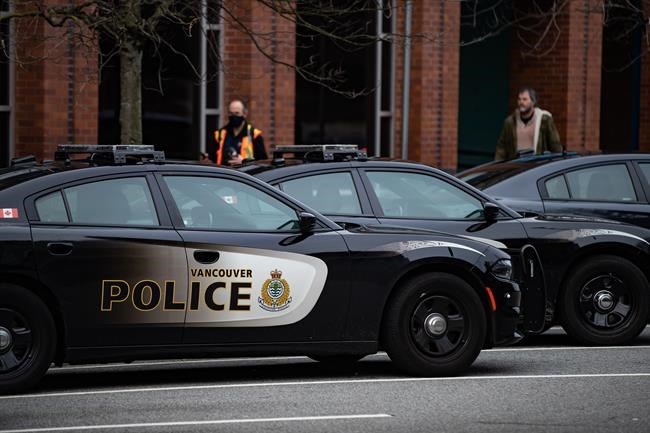VANCOUVER — Members of the African descent advisory committee for the Vancouver Police Department have told the Vancouver Police Board they feel they were lied to over the process to reinstate a program that deploys armed officers to public schools.
Parker Johnson said he and the other committee members had "unanimously and unreservedly" determined they did not want police returning to schools this fall, and they were surprised to learn Thursday that a decision had already been made.
Johnson was among those who walked out of the police board meeting, where board member Rachel Roy resigned over the handling of the re-introduction of the contentious program that had been scrapped by the previous school board in 2021.
It was cancelled after a review prompted by concerns that uniformed officers make some students anxious or upset, including many who identify as people of colour.
Newly elected school trustees voted five to four last November to bring back a "reimagined" program, while the police board voted to approve the department's budget, which included an allocation for the school liaison officer program.
Video from the previous police board meeting in April shows vice-chair Faye Wightman agreeing with Roy that the board had not yet approved the re-introduction of school liaison officers and there would be further discussion.
However, Wightman corrected her earlier remarks on Thursday, saying she made an error in suggesting that a vote on the program would take place in June because the board already voted when it approved the budget last November.
Johnson said the advisory committee sees the situation as a "fiasco."
"You wasted our time asking us to come to a meeting, which you already made your decision on, and so, it seems like a bold-faced lie," he said before leaving the room.
Mayor Ken Sim, who chairs the police board, told Johnson that he hadn't lost his voice and there are avenues by which he could provide comments.
Sim's ABC Vancouver party, which holds a majority on both the school board and city council, campaigned on a promise to return officers to schools.
Sim told the meeting there are strong feelings on both sides of the debate about the program before sharing his own experience as a high school student in Vancouver.
"I was personally preyed on by the Lotus and the Red Eagles," he said, referring to two gangs at the time. "That was the recruiting drive."
If it hadn't been for the school liaison officer program, Sim said he would have experienced "serious physical harm, or I'd be in a gang, or I'd be dead."
Vancouver Deputy Chief Const. Fiona Wilson gave a presentation to the board outlining elements of the new program, saying there has been an increase in violence since officers were removed from schools two years ago.
The presentation suggested officers would carry a smaller gun, a smaller baton, and a smaller canister of pepper spray when the program returns this fall.
Wilson said the liaison officers will also be more diverse, they will receive additional training, and they will wear a different uniform.
Her presentation included a photo of a model wearing a blue hoodie, casual pants and a Vancouver police-branded cross-body bag.
Johnson said the African descent advisory committee feels the decision to bring the program back was "political," and made without sufficient evidence or evaluation.
He noted B.C.'s human rights commissioner, Kasari Govender, wrote a letter to the B.C. School Trustees Association last fall, recommending that school liaison officers be removed from all schools in the province unless each district can demonstrate an evidence-based need that cannot be met through other services.
Sadie Kuehn, co-chair of the advisory committee, told the board that it was "insulting" to have committee members giving up their time, energy and expertise when a "judgment call" on the program had already been made.
Roy said Thursday that the board had "stifled debate" about the program.
"You've lied to the African descent advisory committee. I feel lied to," she told the board members before announcing she would resign after the meeting.
"We didn't have a vote on this as a policy matter," she said.
"We didn't consider what we, as a board, were going to do if our advisory committee said, 'No, this is not the way forward in terms of addressing structural racism.'"
Speaking to media after the meeting, Wightman agreed the police board could have rejected the program's return, but said it was effectively approved with the budget.
She apologized for any misunderstanding.
This report by The Canadian Press was first published June 16, 2023.
Brenna Owen, The Canadian Press



